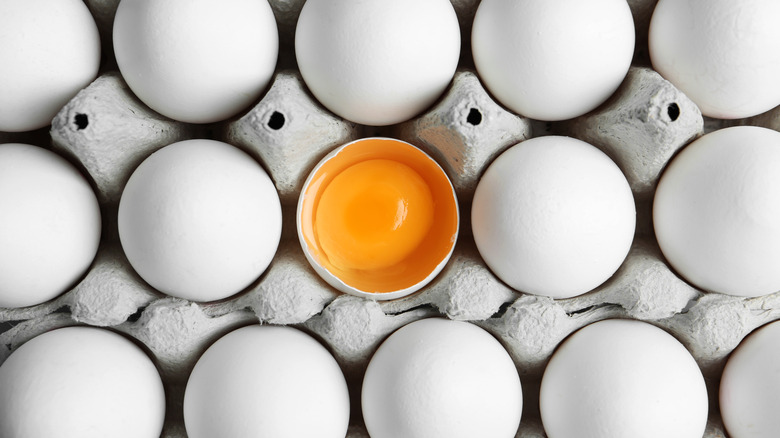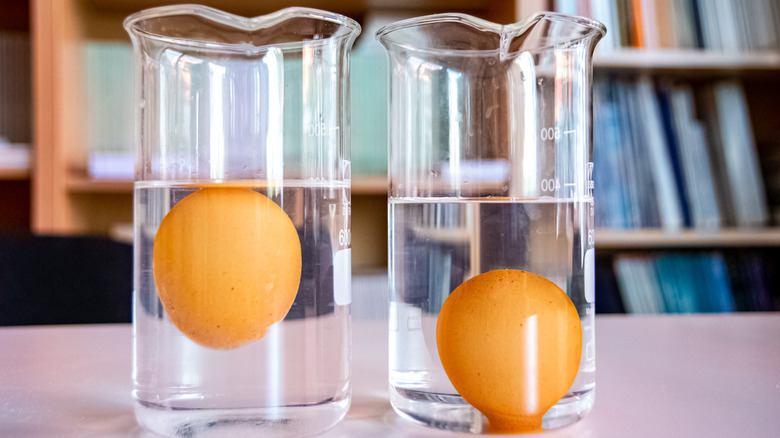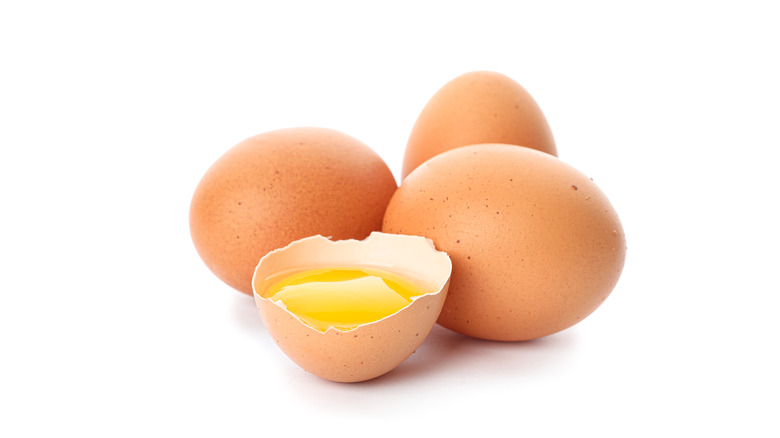Here's How To Tell If Your Eggs Have Gone Bad
On Sundays, breakfast tends to be a little bit more relaxing than the all too popular toast-on-the-go weekday routine. Yes, weekends give us more time to make and enjoy the food we really want to eat — although there could be an issue when you want to whip up an inspiring omelet and suddenly realize the eggs in your fridge have been sitting there for a long time.
To use or not to use? We understand the conundrum. But before you toss your uncracked eggs in the trash along with your Sunday breakfast plans, we have some good news for you. Eggs are actually still safe to use after the best-by date that is printed on the carton. The best-by date is only an indication as to when eggs will be at their highest and freshest quality. So if that date has already been crossed off on your calendar, it doesn't necessarily mean you should cross off the eggs from your breakfast menu.
Sink or swim — or shake
One easy way to tell if the eggs in your fridge have gone bad is the sink or swim test. According to Southern Living, if you are in doubt over if the eggs are still edible, then fill a bowl with ice-cold water and submerge them to see if they sink or swim. If they sink, then they should be fresh enough to eat. If they float, then it's probably best to toss them. Why? Eggshells are semipermeable. This is a scientific term used to reveal that air can get through the eggshell, and older eggs will tend to have more air penetrating their older shells which will cause them to float.
If you're not a fan of the sink or swim test, you can always try out the shake method. As Southern Living states, if you hold the questionable egg up to your ear and give it a shake, then you can often confirm your suspicions. If it's a bad egg, you will likely hear sloshing sounds as older eggs often have a more watery yolk.
Your nose is your best ally
We know now there are a few ways to see if the eggs in your fridge have gone bad without having to crack them open. But if you are more of an "I'll believe it when I see it" type of person, then crack away. When you crack a fresh egg, the yolk is often firmly held together and the white part of the egg is clear. If you crack open the egg and the white looks cloudy, or the yolk is discolored, then keep it out of your omelet.
If you're still unsure after conducting any of the above-mentioned tests, then you can always just be brave and take a whiff. After all, our noses are our allies when it comes to avoiding food that can make us sick. And as Healthline states, if an egg smells off, then toss it. Uncooked eggs should have a neutral odor. So anything smell that makes your nose scrunch and your eyebrows furrow should be kept far away from your plate.
We hope you share these tips with your companions around the breakfast table as our hope is to keep the inspiring weekend omelet as safe and enjoyed as often as possible.



